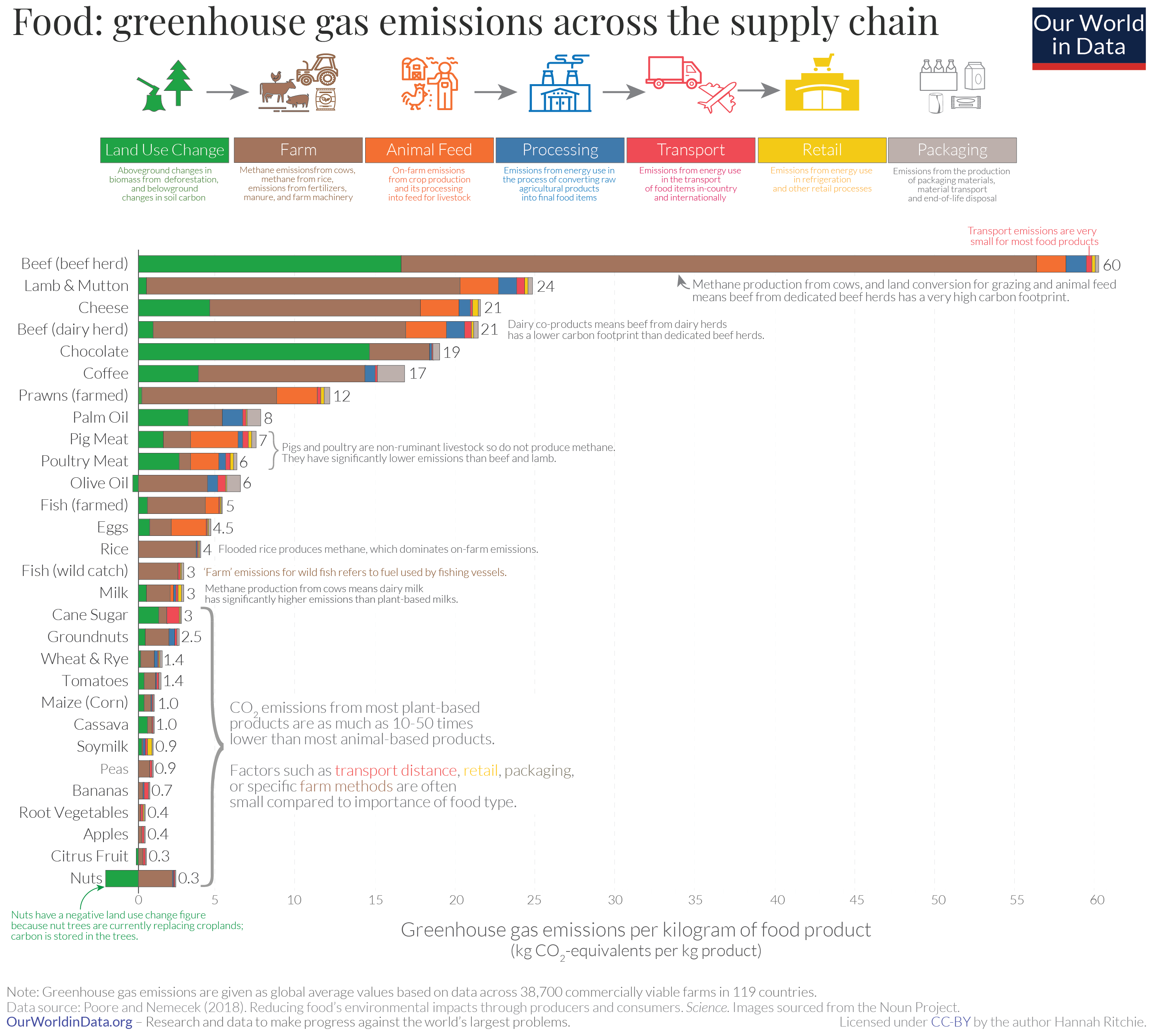Embracing a “Climatarian” Diet
When people think of being sustainable and living a more environmentally friendly lifestyle, they often look at things like the waste they produce, their water and energy usage, and the products they buy. Another significant thing to consider when making these evaluations is our food. There are many factors to consider when trying to eat with the planet in mind from greenhouse gas emissions to deforestation and land use. So how can we go about embracing a “climatarian” diet and helping our planet?
Eat Plant-Based
Reducing the amount of animal products we eat can seem intimidating, unappealing, and generally undesirable for many reasons. Meat is integrated into many cultures and family occasions as well as a signifier of social status and sometimes the most easily available option. However, animal products, especially beef, have some of the highest impacts on the environment of all the food we eat. When talking about deforestation alone, the acreage of forests decimated in Brazil for raising beef is 24% of all tropical deforestation. If you add in the rest of the world, that goes up to 41%, 2.1 million hectacres per year. And this isn’t even the most significant factor when considering the greenhouse gases emitted by beef farming (see graph below).
Just remember that it doesn’t have to be all or nothing when it comes to animal products and reducing things gradually is an option. Choosing a day of the week like “Meatless Monday,” choosing a meal that you will consistently have meat-free, or even just relying on poultry and fish can significantly reduce the environmental impact of your diet. If you’re uncertain of how to incorporate more plant-based food into your diet, we share a new recipe every month! While changing a major factor in your diet can seem intimidating at first, once you experiment and get familiar with using ingredients in new ways it can be fun.
Eat Local
Eating local is a great way to support local businesses and farmers as well as help the environment. Most of the damage done to our planet through agriculture is from large factory farms owned by big corporations. Smaller farms owned by families have a much smaller impact and supporting them is supporting growth in our community. Did you know we have a local farmer’s market? Stop by Fridays and Saturdays from 8 a.m. to 1 p.m. and see what our community farmers have to offer.
Eat Seasonal
In this day and age, it is easy to forget that food doesn’t naturally grow year-round when you can run to the grocery store and pick up anything from cantaloupe to leeks practically any day of any month. Unfortunately, growing and producing food like this is taxing on our environment and demands additional resources in order to grow these foods when they normally wouldn’t grow in nature. To help decrease the demand for produce that normally wouldn’t grow during this time of year, check to see what’s seasonal and try to consider that when getting your groceries.

